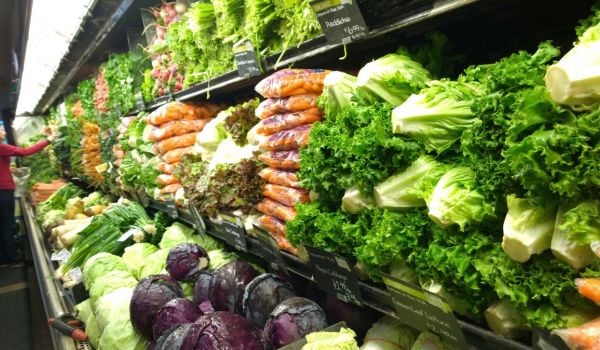When Seattle enacted a 1.75-cent-per-fluid-ounce tax on sugar-sweetened beverages in 2018 to fund healthy food programs, the same arguments that dogged soda taxes in Philadelphia, San Francisco, and Chicago — where the tax was repealed after two months — cropped up: It was a tax on the poor. The money would plug general fund gaps. Record revenues proved it didn’t actually reduce soda consumption. (A later study argued that soda sales plummeted.)
The pushback got so heated that in November 2018, Washington voters approved a statewide ban on any other municipality enacting a soda tax — though Seattle’s was left intact.
But with an estimated 400,000 regional jobs at immediate risk due to the COVID-19 pandemic, Seattle is now drawing on the beleaguered soda tax fund to provide emergency $800 grocery vouchers for 6,250 families. Sent in two $400 installments, the first round of vouchers that can be put toward groceries (excluding alcohol, tobacco, fuel, and lottery tickets) at any Safeway in the state have already been mailed. The second round will be mailed in April. The vouchers are intended to provide $100 per week for eight weeks, a calculation of the minimum amount to sustain a household based on metrics from other nutrition programs.
In an interview with Next City, Mayor Durkan called the vouchers “one of the most remarkable programs” her administration has unveiled in a rapid-fire response to the coronavirus, which struck the Seattle metro area weeks before the rest of the U.S.
“As schools and child care facilities close, we need to do everything we can to support families and ensure they can put food on the table,” she said.
The emergency grocery vouchers piggyback on an existing public-private relationship, which allowed the new initiative to be rolled out with lightning speed. Fresh Bucks, a city-run food assistance program funded by the soda tax, already enrolls city residents receiving SNAP benefits to receive $40 monthly vouchers that can be used at Seattle farmers markets and Safeway to buy fresh produce. Simply scaling up this existing infrastructure with an influx of cash allowed the city to deploy the emergency vouchers quickly. The city hopes to expand the program and enroll newly needy city residents with the support of philanthropic dollars, which are actively being solicited through the #AllInSeattle campaign.
Last year, Mayor Durkan and the Seattle City Council engaged in what the Seattle Times called a “nasty spat” over the soda tax revenue, which brought in $22.4 million in its first year, well over the $15 million projected. Durkan used $6 million for general fund needs to balance her budget. The council passed a law establishing a fund that would restrict the money exclusively to healthy food initiatives, as initially intended by the tax legislation. Durkan threatened to veto.
Now that political squabble seems like ancient history as $5 million of the soda money was rapidly deployed to provide much-needed assistance in a crisis situation.
“Any type of funds that can be held until times of crisis — basically emergency piggy banks — those are always good things,” Jordan Rubin of the state’s largest hunger relief non-profit, Northwest Harvest, told Next City. “It’s then up to our elected officials and oversight committees to make sure they’re utilized responsibly.” In this case, he said, there is no doubt it was a wise use of the fund: “It has been a blessing for the circumstance.”
Northwest Harvest runs Seattle’s largest food bank. In the early days of the pandemic, pantry items have been more popular but otherwise the operation has felt like business as usual. However, Rubin is bracing for surging demand in the weeks to come, which makes initiatives like the vouchers all the more crucial to ease the burden on the food bank, already suffering from fewer volunteers, especially large corporate groups, during a time of social distancing. As a result, he says, “Any bit is going to help in times like these.”
City officials and the food bank are both adamant that grocery vouchers are just a stopgap measure.
“It’s a great first start but that’s all it should be,” Rubin says.
Durkan has been insistent on that point from the outset. “Ultimately, we will need an unprecedented relief package from Congress to address the long-term consequences for working people who are already feeling the impact of this global pandemic,” she said last week, calling for “something bigger than the New Deal” and sending letters to Congress.
She may have gotten her wish this week as Congress works to approve the $2-trillion Coronavirus Aid, Relief, and Economic Security (CARES) Act. “Over the last three weeks, the City, County and State have worked to urgently deploy every measure at our disposal to help first responders and medical workers get the supplies they need, and to lessen the burden felt by communities and small businesses,” she said in a statement. “But we’ve known local action is not enough. The CARES Act will provide much-needed relief to the American people now. I appreciate the Senate’s vote today, which addresses the urgency of the moment for the individuals who are struggling in Seattle and our region.”
As a result of the CARES Act, U.S. residents struggling economically will see $1,200 checks in the mail in the coming weeks. But for those low-income Seattleites who lost their jobs as early as the first week of March, when major employers like Amazon began implementing remote work policies and subsequently sucked the economic life out of downtown neighborhoods, the Seattle grocery vouchers already in hand will help fill the void.
“As the days and weeks of this crisis continue on, our lowest-income families and hourly-wage workers need help now,” said Seattle City Councilmember Tammy Morales in a statement. “All the economic relief in the world is no good if people are starving or struggling with survival.”

Gregory Scruggs is a Seattle-based independent journalist who writes about solutions for cities. He has covered major international forums on urbanization, climate change, and sustainable development where he has interviewed dozens of mayors and high-ranking officials in order to tell powerful stories about humanity’s urban future. He has reported at street level from more than two dozen countries on solutions to hot-button issues facing cities, from housing to transportation to civic engagement to social equity. In 2017, he won a United Nations Correspondents Association award for his coverage of global urbanization and the UN’s Habitat III summit on the future of cities. He is a member of the American Institute of Certified Planners.



_600_350_80_s_c1.jpg)












